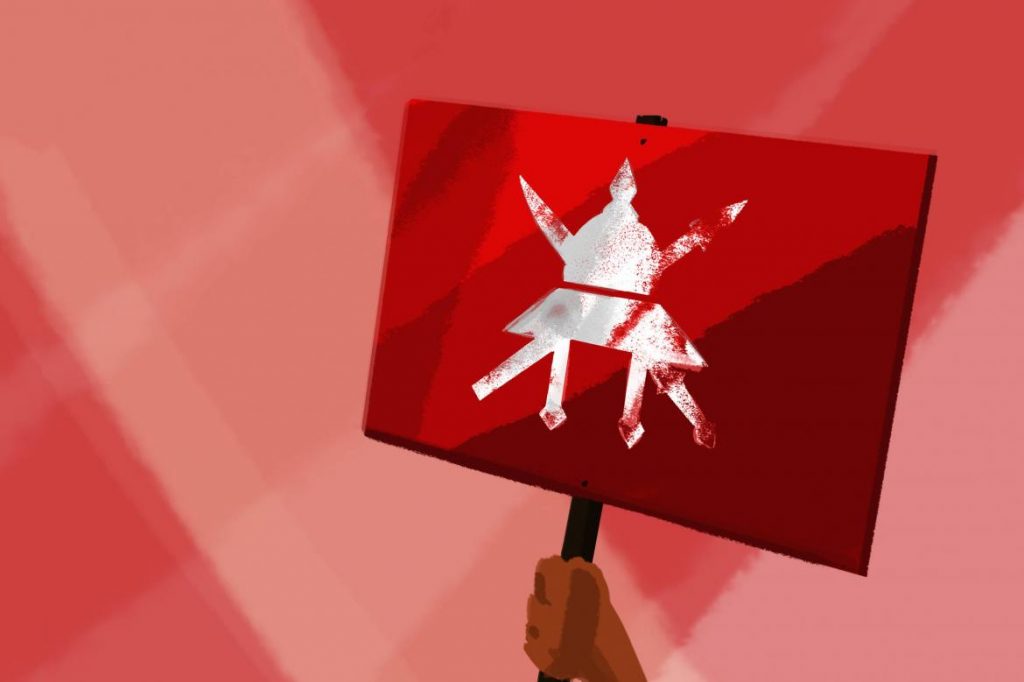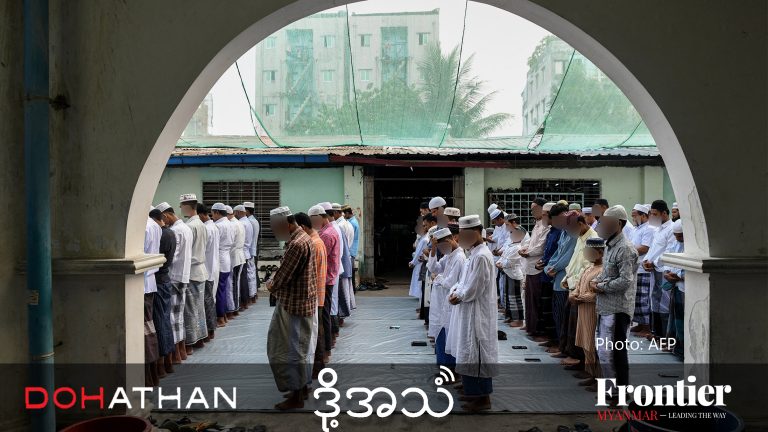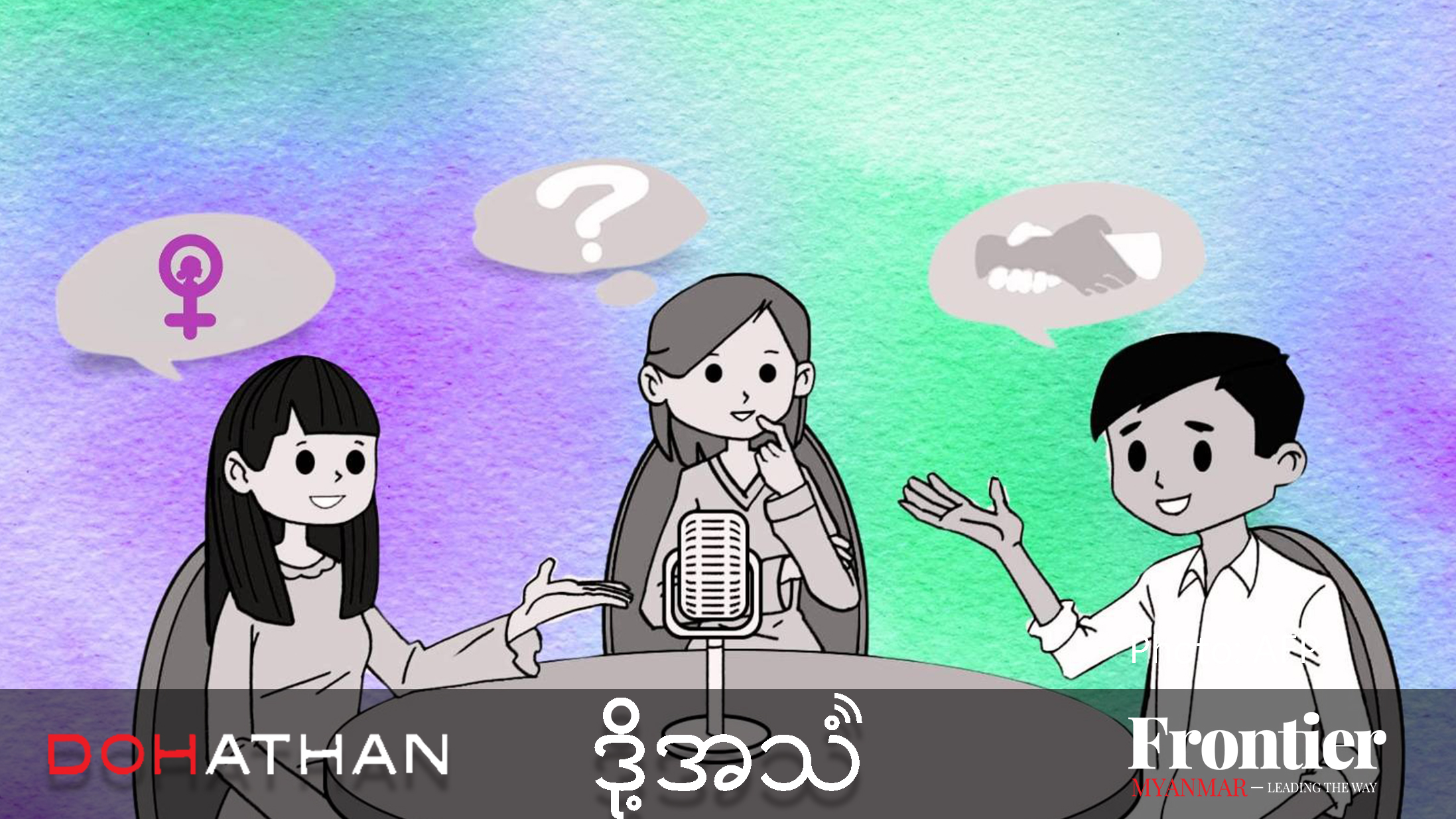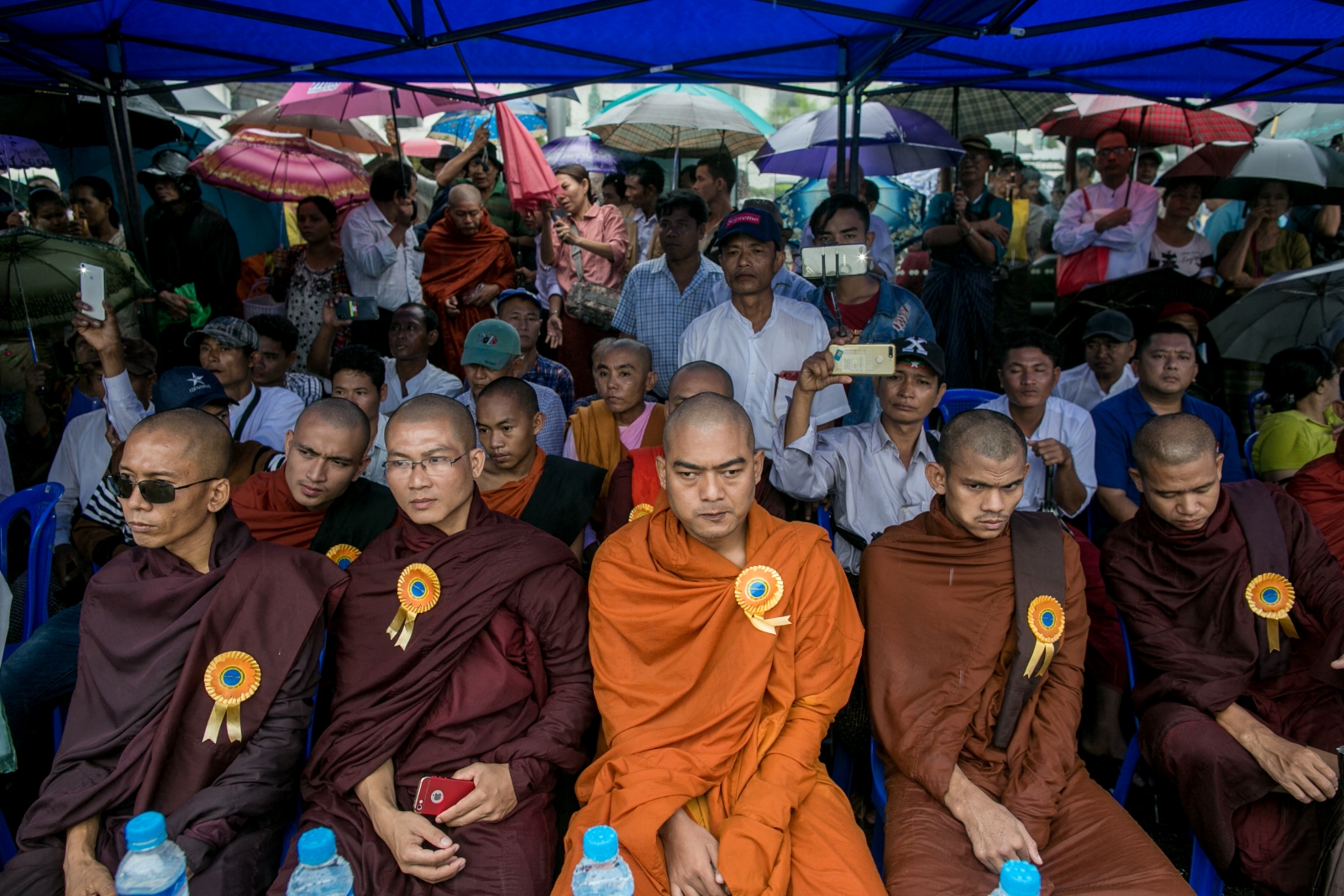On October 31 last year, Senior General Min Aung Hlaing praised recent demonstrations that were staged in support of the Tatmadaw and in opposition to “one-sided allegations and interference” from abroad.
The largest and most high profile of these protests took place in Yangon, where thousands marched to Mahabandoola Park on October 14.
“Such rallies showed that they understand the goodwill of Tatmadaw toward the Union and people, and that Tatmadaw and people are on the same side,” Min Aung Hlaing said, adding: “Such good tradition should be maintained.”
And so it has. Over the past six months, pro-military protests have been held in almost every state and region. More recently, these demonstrations have been framed as protests against the National League for Democracy’s moves in the national legislature to amend the constitution.
These protests have been peaceful and orderly. Those participating are exercising their democratic rights. It would indeed be a “good tradition” – provided that such rights were extended to all, and everyone could protest without fear of being arrested, fired upon by police or attacked by thugs.
In Myanmar, the ability to protest legally is less a right than a privilege bestowed on some and not on others, seemingly for political reasons.
Support more independent journalism like this. Sign up to be a Frontier member.
There appears to be a fairly clear bias in implementing the Right to Peaceful Assembly and Peaceful Procession Law, by which those holding protests deemed to be anti-government or anti-Tatmadaw are blocked from doing so. As we explore in our article, ‘The right to demonstrate? It depends who you are’, organisers of “anti-government” protests are regularly prosecuted and imprisoned.
The peaceful assembly law grants local authorities sweeping powers to regulate protests, which they exercise in a manner that is frequently partial, disproportionate and unnecessary to maintaining law and order. The problems begin with the law’s stated objectives, which focus more on restricting demonstrations than enabling people to exercise their rights.
These issues would be exacerbated further by proposed amendments passed by the upper house of parliament in March last year that would, among other things, require protest organisers to disclose the source of their funding. These changes have stalled in the lower house, but there is a real risk NLD leaders could dust them off at any time to tackle some perceived threat to their power.
As with speech, legitimate restrictions can be placed on protests in certain limited, well-defined contexts. These are outlined in the International Covenant on Civil and Political Rights – which Myanmar has not signed despite a recommendation from the Myanmar National Human Rights Commission that it do so – and include national security, public order and public health.
But these restrictions need to be proportionate and necessary. The 2017 directive from the Yangon Region government banning protests in 11 townships is the perfect example of a disproportionate and unnecessary restriction, and is a blight on Myanmar’s transition to democracy.
Frontier does not advocate that those seeking to protest in support of the military be blocked from doing so, except in particularly extreme circumstances, such as if the protests were inciting violence.
Rather, the law should once again be revised to conform to the standards outlined in the International Covenant on Civil and Political Rights, which Myanmar ought to eventually sign, and further guidance should be issued to police and local authorities to narrow the circumstances under which demonstrations can be blocked or restricted. Experience has shown that wide discretion reliably leads to unfair outcomes, where some groups are privileged over others. The bill before the national legislature would only make the situation worse.
Many NLD lawmakers have a long history of involvement in public protest and have gone to prison for their political activities. To pass the bill presently before them would be a repudiation of the values they have long claimed to stand for. Instead of voting in favour of amendments that would criminalise legitimate political expression, and potentially put another generation of political activists behind bars, they should stand up to their party leaders and throw the bill out.







